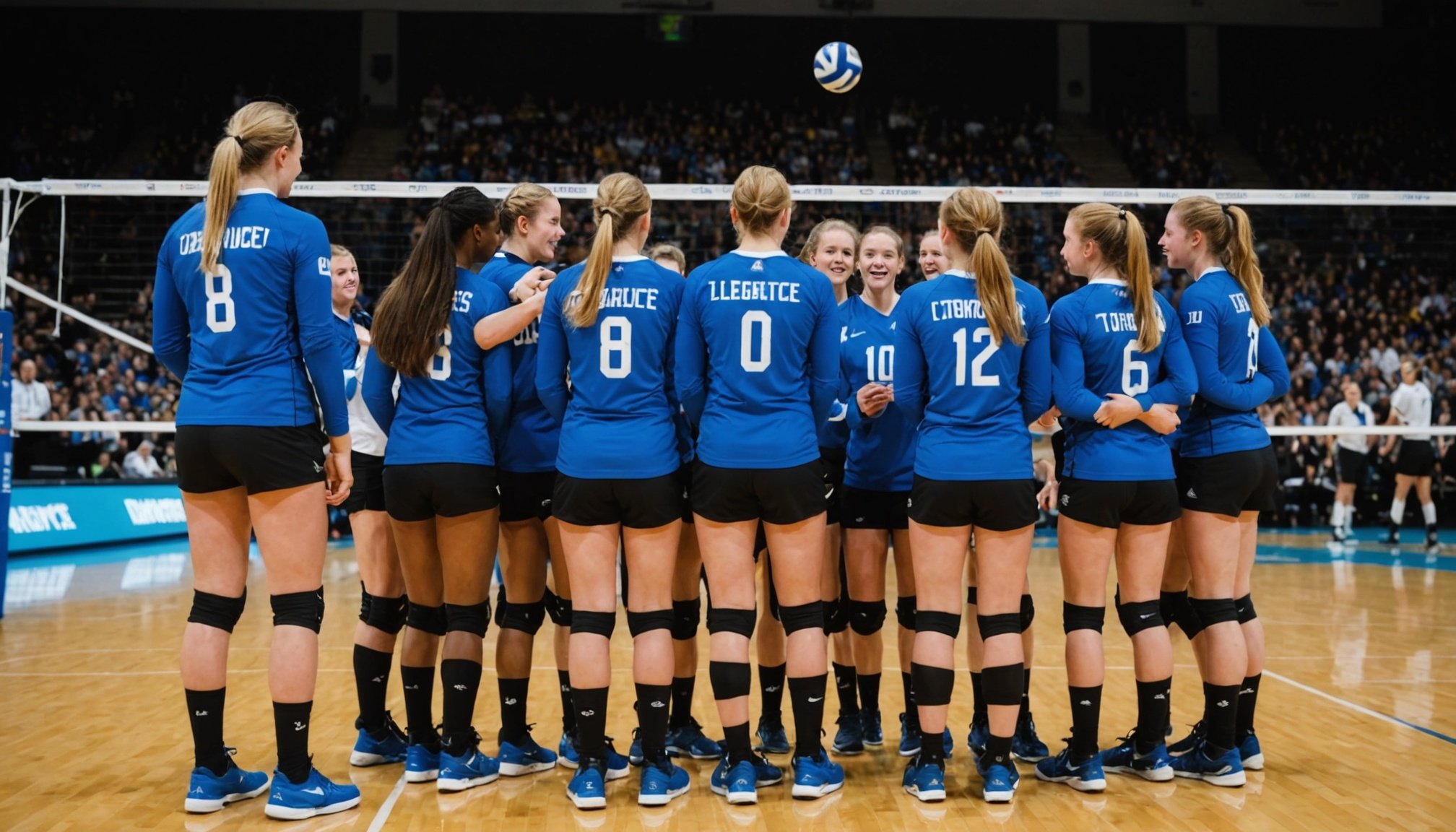Enhancing Volleyball Defense Through Game Tape Analysis
Game tape analysis is a vital tool for improving volleyball defense strategies, offering crucial insights that are pivotal for UK teams aiming for top performances. Helps players and coaches understand their own defensive strengths and weaknesses by watching game footage meticulously. This practice allows teams to identify successful defensive techniques they might want to replicate.
UK teams excelling in defense often credit their success to diligent game tape analysis. Observing footage from different camera angles provides diverse perspectives on defensive positioning. Assessments drawn from past matches can highlight patterns or recurring mistakes, turning episodes of past failures into opportunities for tactical improvement.
Also read : Enhancing Athletic Edge: How Yoga and Mindfulness Boost Performance for UK Athletes
Through this process, key defensive drills can be tailored specifically to address weaknesses observed. These drills focus on reaction time, anticipation, and the ability to read opponents’ actions. Moreover, players gain an understanding of opponents’ strengths and strategies, preparing them for future encounters.
For coaches, applying these insights can significantly influence game results. The practice creates a cycle of continuous learning and adaptation. As coaches and players engage in game tape analysis, it directly translates to improved defensive strategies on the court.
Have you seen this : Innovative Approaches for UK Sports Clubs to Engage Underserved Communities
Techniques for Effective Game Tape Analysis
In the realm of volleyball, mastering defensive techniques requires an astute approach to game tape analysis. To truly harness this tool, particular techniques and strategies must be employed.
Selecting the Right Game Tape
Choosing the appropriate game tape is crucial for effective analysis. It involves evaluating different matches to identify recordings with relevant examples of defensive scenarios. This selection process is vital for gaining insights needed for improving defensive positioning and tactics.
Identifying Key Defensive Plays
Breaking down key defensive plays from the footage allows teams to pinpoint successful maneuvers and persistent flaws. Analyzing these plays helps in developing a defensive playbook that highlights strengths and addresses tactical improvements. This process becomes a roadmap for training sessions focused on fortifying weaknesses.
Analyzing Opponent’s Strategies
To truly outsmart an opponent, it’s essential to understand their strategic approach. By noting the opponent’s formation and play style, teams can anticipate moves and adjust their defensive strategies accordingly. Observing and categorizing plays that highlight vulnerabilities reveals patterns in defense weaknesses and areas for enhancement. Through this nuanced understanding, teams can evolve their game-plan to better counter opposing strategies.
Case Studies of UK Teams
UK volleyball teams have consistently showcased the significant benefits of game tape analysis in refining their defensive strategies. Teams like the University of Warwick and the University of Edinburgh have elevated their performances by meticulously studying game footage.
Notable Success Stories
For instance, the University of Warwick’s defensive prowess improved dramatically after they began regular tape reviews. Coaches analyzed past matches to identify key defensive plays and areas of improvement, allowing them to tailor drills that enhanced players’ defensive skills.
Testimonials from Coaches
Coaches from these teams have testified to the efficacy of game tape analysis in reshaping defensive tactics. They highlight how dissecting footage has not only refined techniques but also fostered a deeper understanding of opponents’ strategies. This comprehensive review process has been crucial in crafting a robust defensive playbook.
The success stories of these UK teams underscore the transformative potential of integrating detailed game reviews into routine training sessions. By leveraging these insights, teams can maintain a competitive advantage and consistently enhance their defensive capabilities.
Leadership Development in UK Youth Sports
Leadership development within UK youth sports is pivotal in nurturing well-rounded young athletes. Participation in sports can instil essential leadership skills like responsibility, communication, and decision-making. By engaging in competitive and team-oriented environments, athletes can naturally develop these qualities.
Several UK programs are dedicated to fostering leadership in young athletes. Initiatives such as the Youth Sport Trust employ strategic approaches to enhance leadership qualities, offering tailor-made workshops and activities. These programs create environments where young athletes can assume leadership roles, driving team goals and leading by example.
The impact of leadership skills on athlete performance and teamwork is substantial. When young athletes enhance their leadership abilities, they tend to exhibit increased motivation and better collaborative skills. These developments often translate into improved team dynamics on and off the court, creating stronger, more cohesive teams. The role of mentors is crucial, guiding youth through training sessions that teach them how to motivate peers and engage positively with teammates. Ultimately, these programs not only mould proficient athletes but also inspire future leaders.
Integrating Leadership Skills into Volleyball Training
Incorporating leadership in sports, specifically within volleyball training methods, creates a foundation for nurturing well-rounded athletes. Essential skills such as communication, confidence-building, and strategic thinking can be integrated into daily training.
Teaching Values Through Team Dynamics
Developing leadership through team dynamics involves fostering an environment where young athletes recognise the importance of their role within the team. Encouraging teamwork and trust-building exercises enhances their understanding of collaborative success. Such activities not only bolster team spirit but also strengthen players’ ability to lead peers effectively.
Mentorship and Role Models in Training
Coaches as mentors play a pivotal role in promoting leadership skills. By embodying role models, they provide young athletes guidance on setting goals and demonstrating resilience. Through mentorship, coaches instil values of perseverance and ethical sportsmanship, essential for leadership development.
Building Confidence and Communication Skills
Confidence and communication are crucial skills for young athlete development. Implementing communication drills during training helps athletes articulate strategies clearly and ensures on-court collaboration. Engaging in exercises that promote public speaking and assertiveness will empower athletes to take initiative in high-pressure situations.
Measuring Success in Leadership Development
Assessing success in leadership skill development among young athletes requires well-defined success metrics. These metrics help evaluate the impact of training programs on athlete performance and leadership qualities. By focusing on measurable outcomes, UK leadership programs ensure that their objectives align with skill enhancement.
Key metrics include:
- Athlete feedback: Collecting input directly from participants is crucial. It provides insights into the effectiveness of leadership exercises and helps refine future sessions.
- Performance statistics: Monitoring improvements in athletic performance often reflects the influence of leadership skills. Metrics such as increased participation in team discussions and initiative-taking on the court suggest positive development.
- Team cohesion indices: Evaluating the overall team dynamics helps determine whether leadership training has successfully translated into improved collaboration and communication.
Real-world case studies illustrate how leadership development yields long-term benefits, such as heightened morale and teamwork efficiency. Providing constructive feedback and conducting program evaluations ensure ongoing improvement, enabling youth programs to achieve their leadership objectives. The continuous cycle of assessment and enhancement aids in preparing young athletes for future challenges as both individuals and team members.




